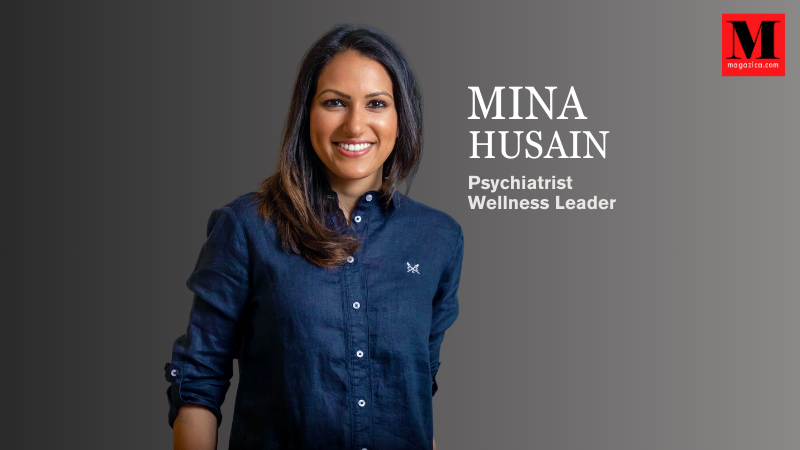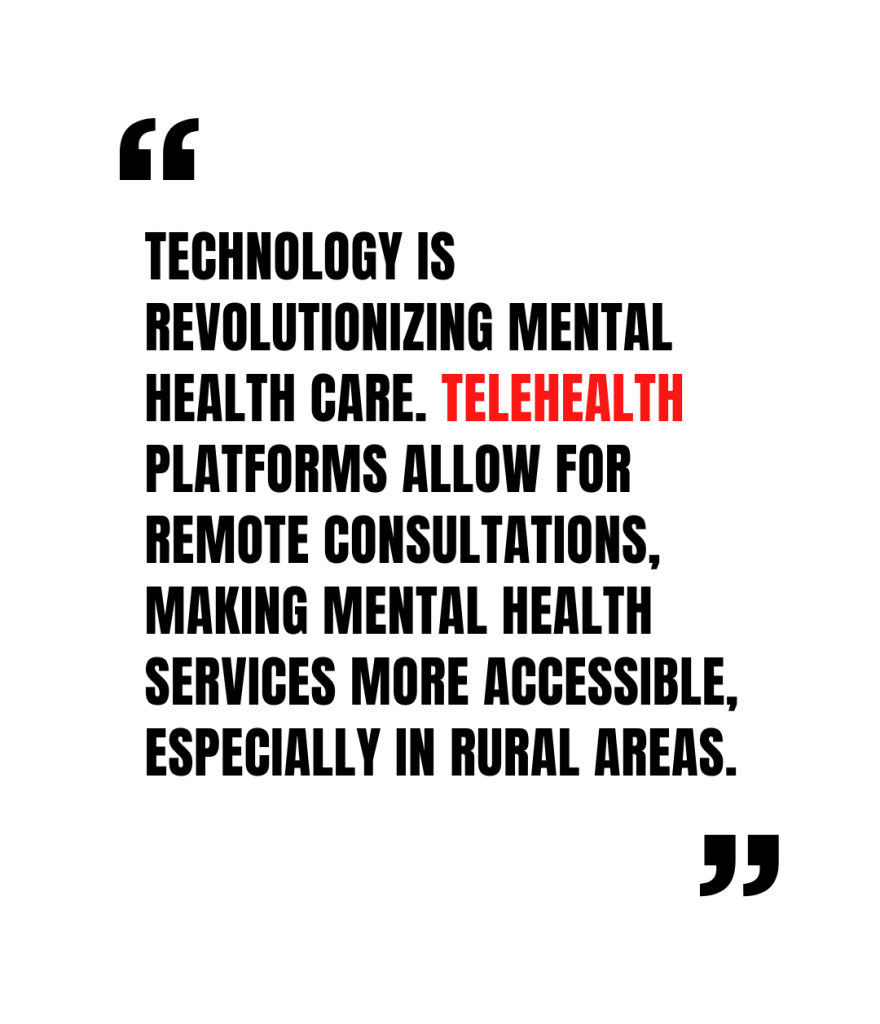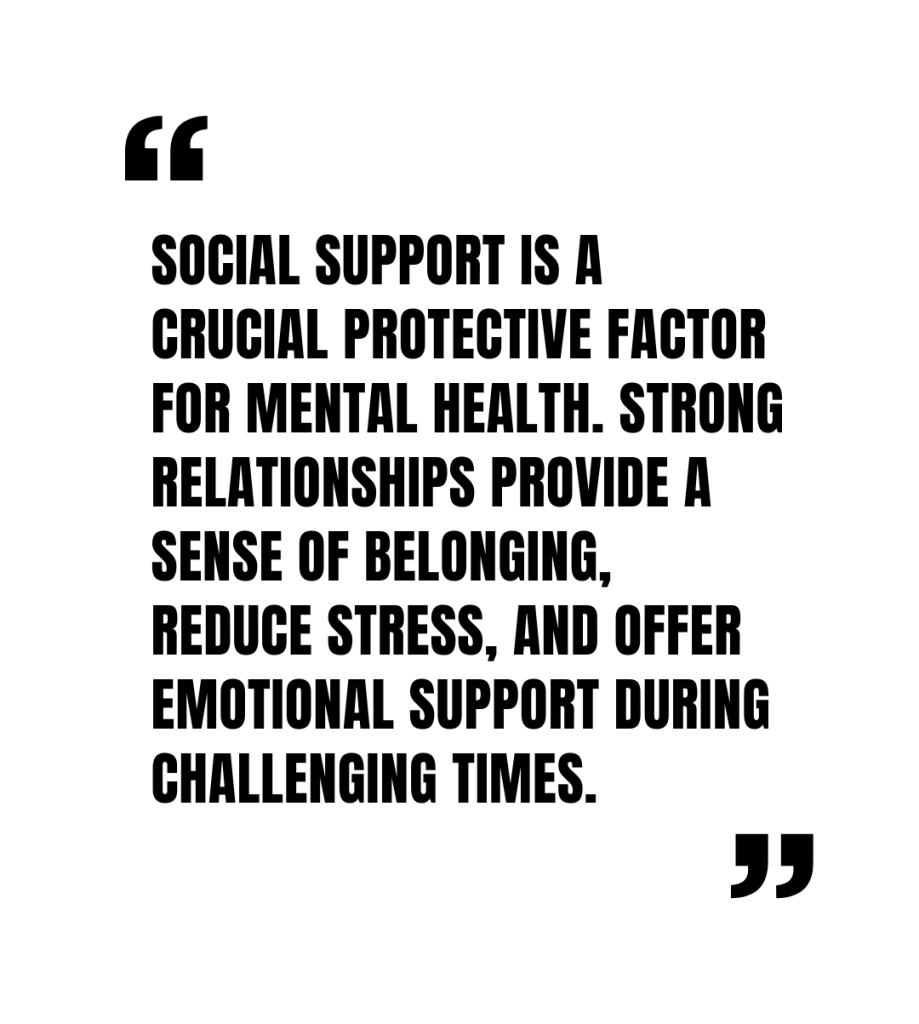Debunking Mental Health Myths: Insights from Dr. Mina Husain about Tech, Nutrition & Mental Wellbeing
- Home
- Debunking Mental Health Myths: Insights from Dr. Mina Husain about Tech, Nutrition & Mental Wellbeing

Debunking Mental Health Myths: Insights from Dr. Mina Husain about Tech, Nutrition & Mental Wellbeing
Magazica: What drew you to psychiatry, and can you share a bit about your journey so far?
Mina Husain: The human experience has always fascinated me. The complexity of our thoughts, emotions, and behaviors is both captivating and challenging. Psychiatry offered me a unique opportunity to explore the intricate workings of the mind while gaining insight into people’s stories. My journey began with medical school Postgraduate Speciality Training in London, England. The diversity of London deepened my understanding of clinical practice and solidified my passion for this field.
Returning to Toronto, I found a fulfilling role at CAMH and the University of Toronto, where I can contribute to both clinical care and academic advancement. I work across several clinical settings- inpatient psychiatriatry, the emergency department, and outpatient care. Outside of my clinical activities, I am actively involved in research (global mental health) and in the creative arts (as an independent film producer)
Magazica: Can you tell us what a psychiatrist does and how it’s different from other mental health-related services?
Mina Husain: Psychiatrists are medical doctors specializing in the diagnosis, treatment, and prevention of mental illnesses. We possess a unique combination of medical and psychological expertise.
We work very closely with other mental health professionals including pharmacists, social workers, psychologists, and nurses.
Magazica: What are some common mental health myths that you have encountered so far? How can we debunk them?

Mina Husain: Unfortunately, mental illness continues to be shrouded in stigma. There are often misconceptions about those with mental disorders being weak, feigning issues, or at times those struggling with mental disorders are considered violent or dangerous. It is important to portray accurate depictions to improve our understanding of illness and to debunk these myths.
There have been significant leaps in awareness, and we’re making progress. Initiatives like anti-stigma campaigns in schools, community groups, and workplaces are essential. The media has a powerful role in shaping public perception and can be used to challenge harmful stereotypes and promote understanding.
We can all contribute to debunking myths and fostering a more supportive and inclusive society for those with mental illness.
Magazica: How do you see technology changing the field of mental health, and what impact does it have on patient care?
Mina Husain: Technology is revolutionizing mental health care. Telehealth platforms allow for remote consultations, making mental health services more accessible, especially in rural areas.
Artificial intelligence can assist in diagnosis, treatment planning, and personalized interventions. Our research team is currently developing an AI-based mobile app to provide interventions for youths struggling with self-harm and suicidal ideation.
While technology offers many benefits it is important to use technology responsibly and ethically, ensuring patient privacy and data security.
Magazica: What are some practical tips for managing stress and anxiety in our everyday lives?
Mina Husain: The following things are to be taken care of.
Magazica: What signs should people look out for that might indicate they need to see a mental health professional, and how can they take that first step?
Mina Husain: If there are any safety concerns you should seek medical support immediately. These include any thoughts to hurt yourself or thoughts to hurt others. If these occur it is important to attend your nearest emergency department or call the police.
Other signs and symptoms that are concerning include poor concentration, loss of interest/ability to feel pleasure, change in energy levels, social withdrawal or persistent sadness, anxiety, or irritability.
Make sure you see your primary care doctor, if further input is required they can refer you to a specialist.
Magazica: How important is self-care for mental health, and what are some simple self-care practices our readers can try?
Mina Husain: Self-care is fundamental to mental well-being. It involves prioritizing your physical and emotional needs. Some useful practices include yoga, meditation, creative outlets, and social connection. It is imperative to practice good sleep hygiene, maintain your nutrition, and try and incorporate physical exercise.
Magazica: Can you talk about the connection between nutrition, physical activity, and mental health, and how can people make healthier choices?
Mina Husain: A healthy lifestyle plays a significant role in mental health.
Eating a balanced diet rich in fruits, vegetables, whole grains, and lean protein can improve mood and cognitive function. Some tips include planning meals in advance and cooking more at home.
Exercise releases endorphins, reduces stress hormones, and improves sleep quality, all contributing to a positive mental state. It also leaves you with a sense of accomplishment which is helpful for your mental well-being. Try and set realistic goals and work towards consistency.

Magazica: How does social support affect mental well-being, and what can people do to build and maintain strong support networks?
Mina Husain: Social support is a crucial protective factor for mental health. Strong relationships provide a sense of belonging, reduce stress, and offer emotional support during challenging times. Social isolation and loneliness are some of the biggest risk factors for mental distress.
Magazica: How do you keep up with the latest developments in psychiatry, and what resources would you recommend to our readers?
Mina Husain: Staying current with the latest research and clinical practice guidelines is essential for providing optimal care. I regularly attend conferences, read peer-reviewed journals, and participate in professional development activities. I also find the arts a very powerful tool to understand mental illness. I regularly listen to podcasts and watch mental health-related content.
Magazica: What advice would you give to someone thinking about a career in psychiatry or mental health?
Mina Husain: It is a rewarding and demanding feel and involves a journey of lifelong learning. Psychiatry demands strong communication skills, patience, a nonjudgmental perspective, and empathy/compassion. It is also important to practice self-care as we work with challenging cases throughout our careers.
Magazica: What are your future goals and dreams, and how do you plan to keep making a difference in mental health?
Mina Husain: My goal is to contribute to a more just and equitable mental health system, where everyone has access to high-quality care. I am passionate about taking steps to tackle stigma and have been deeply involved in the creative arts to take some steps towards this. I also strongly believe that technology can be better used to improve the quality of care alongside access to care. By combining clinical practice, research, and public engagement, I hope to make a meaningful contribution to improving the lives of those affected by mental health challenges.
- Share
Mina Husain
The human mind is incredibly complex. We get stuck in loops of anxiety. Our thoughts race. We feel lost and alone. Dr. Mina Husain, a practicing psychiatrist, understands these struggles. In this interview, she unpacks mental health myths, provides practical tips for managing stress, and explains how technology is transforming mental healthcare. Get ready for actionable insights to improve your mental well-being.
